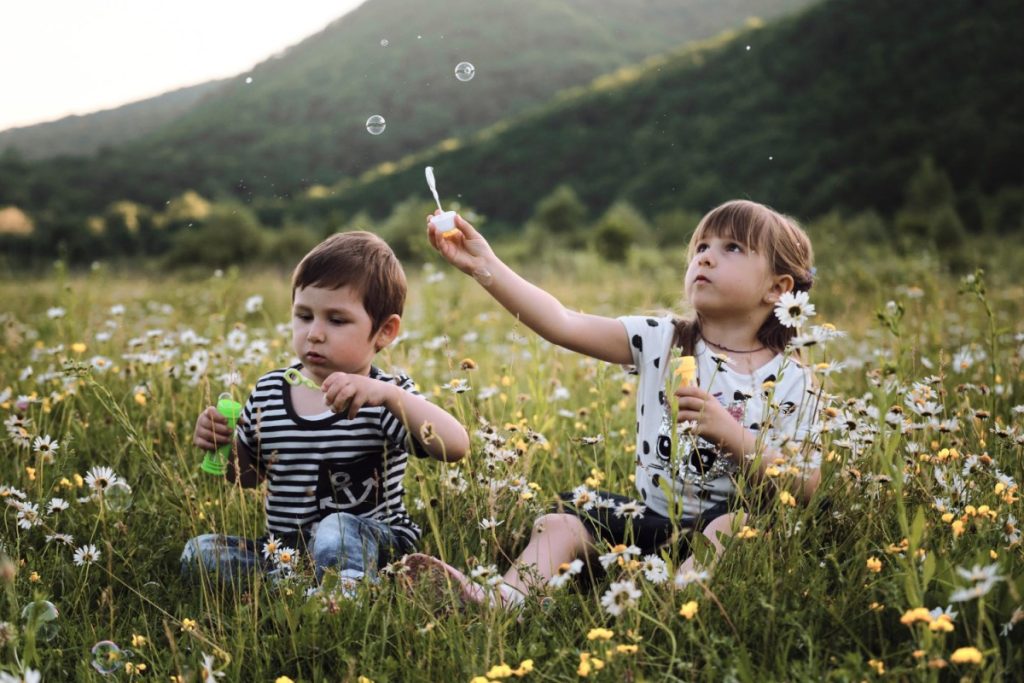Nature plays a pivotal role in early childhood development, providing a foundation for holistic growth. Research has consistently shown that exposure to nature enhances cognitive, emotional, social, and physical development in young children. Here’s how integrating natural environments into educational approaches can benefit early childhood development.
Cognitive Development
Nature provides a rich, multisensory learning environment that stimulates children’s curiosity and creativity. Outdoor classrooms and nature-based activities encourage exploration and problem-solving. Children engage in hands-on experiences, such as planting gardens, observing wildlife, and conducting simple experiments. These activities promote critical thinking, enhance attention spans, and foster a love for learning.
Example: During weekly nature walks, children collect leaves, flowers, and rocks. They classify and count their finds, enhancing their understanding of basic scientific and mathematical concepts.
Emotional and Psychological Well-being
Interacting with nature has a calming effect on children, reducing stress and anxiety. Ensuring that children have ample opportunities to connect with nature through unstructured play and guided activities helps them develop a sense of peace and mindfulness, improving their emotional resilience.
Example: Sensory gardens provide a tranquil space where children can relax, touch, smell, and see various plants, helping them to regulate their emotions and build a sense of calm.
Social Development
Nature-based activities encourage teamwork, communication, and social interaction. Children learn to work together, share resources, and develop empathy through group activities such as gardening, nature art projects, and outdoor games.
Example: In community gardens, children work together to plant and care for vegetables. They learn to share tasks, cooperate, and celebrate the fruits of their labor, fostering a sense of community and teamwork.
Physical Development
Outdoor play is essential for physical development. Playgrounds and natural play areas designed to promote physical activity help children develop gross motor skills, coordination, and strength through activities like climbing trees, running on uneven terrain, and balancing on logs.
Example: Obstacle courses made from natural materials like logs and stones encourage children to test their physical abilities, improving their balance, agility, and overall physical fitness.
Environmental Stewardship
By integrating nature into the curriculum, a sense of environmental stewardship is instilled in children from an early age. They learn the importance of caring for the environment and develop sustainable habits that they carry into adulthood.
Example: Recycling and composting programs teach children about waste management and the benefits of reducing, reusing, and recycling, fostering a sense of responsibility towards the environment.
Parental Involvement
Encouraging parents to join nature-based activities and continue these practices at home reinforces the benefits of nature for children and creates lasting family bonds.
Example: Family nature days where parents and children explore local parks together, engage in environmental projects, and learn about the natural world as a family unit can be beneficial.
Recognizing the invaluable role that nature plays in early childhood development ensures that children benefit from rich, nature-based experiences. By fostering cognitive, emotional, social, and physical growth, children not only thrive academically but also develop a deep appreciation and respect for the natural world. Integrating nature into educational approaches can nurture a generation of environmentally conscious, well-rounded individuals equipped to face the future with confidence and compassion.
At Little Planet Preschool, we adhere creating a nurturing environment where children can explore, learn, and grow. Our mission is to cultivate a love for learning that lasts a lifetime. Visit Little Planet Preschool to learn more about our programs and enrollment process.

